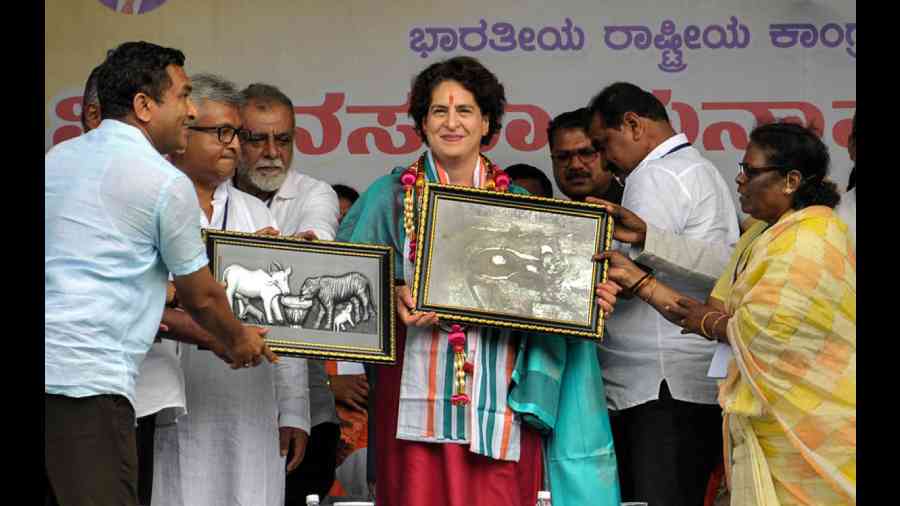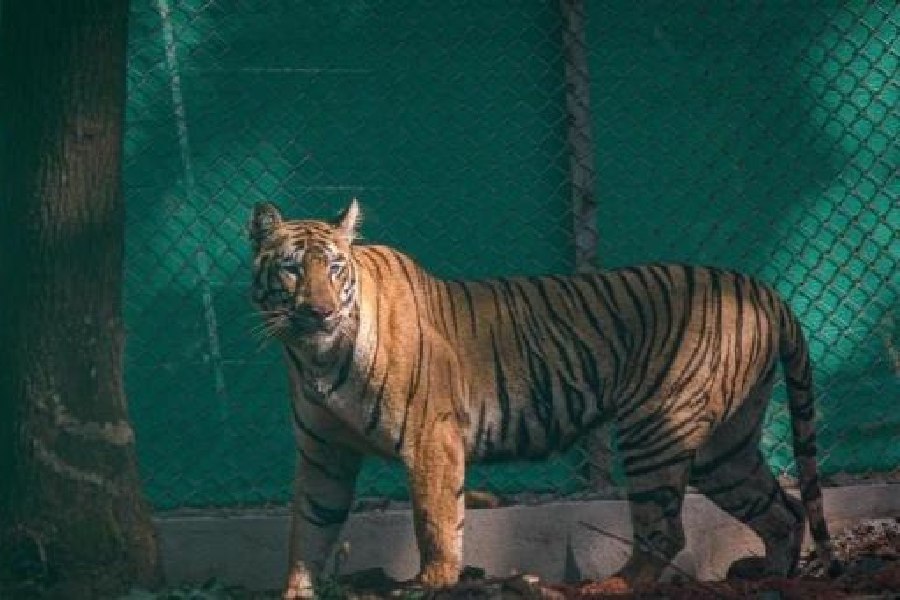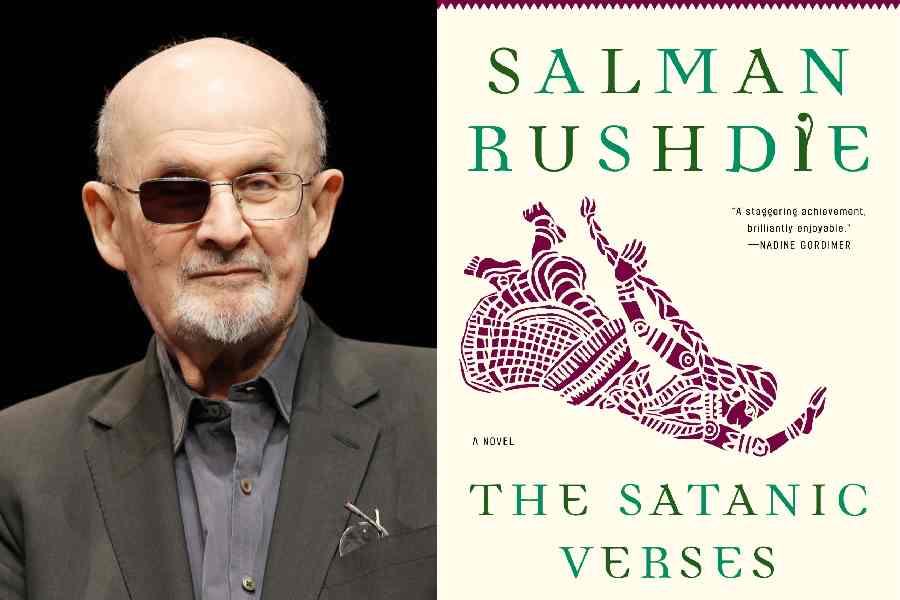The Congress leadership has poured out everything into the Karnataka election campaign, realising that its inability to defeat the BJP here will not only demoralise the party cadre but also substantially whittle down its bargaining power in the Opposition camp for the 2024 parliamentary elections.
A victory is essential for the Congress in Karnataka because of three reasons: First, the BJP government is battered and depleted, facing an exceptional credibility crisis because of a 40 per cent commission charge.
Second, the Congress has strong organisational machinery and local leadership in the state.
Third, the party enjoys an advantage in the perception war, with the majority of opinion polls predicting a clear edge over the BJP.
The party leadership is aware of its vantage position and is doing whatever is possible to transform the pre-poll realities into a grand victory. “This is the best we can do in terms of electioneering. We announced candidates and started our campaign early. We have a good team to counter the BJP on the ground and on social media on every issue and so far we have succeeded in controlling the narrative,” a senior leader involved in planning told The Telegraph from Bangalore.
While former chief minister Siddaramaiah and state chief D.K. Shivakumar make a formidable combination at the local level, they have received a big boost in campaigning with the Delhi trio of Mallikarjun Kharge, Rahul Gandhi and Priyanka Gandhi Vadra dedicating themselves to the state. This is in sharp contrast to Gujarat where the local unit was left to fend for itself, while Rahul and Priyanka kept aloof and Kharge involved himself at a very late stage.
Kharge, being the party president, has added new vigour to electioneering because he himself comes from Karnataka. He is not only holding a news conference and two public rallies daily in different districts of the state, but is also monitoring the campaign on a regular basis and responding to the needs without any delay.
On Wednesday, he appointed five regional observers to strengthen the feedback system. He is unlikely to return to Delhi before the election is over.
Rahul, who finished his two-day outing in the state on Tuesday, will return on Thursday to resume his campaign. While he enjoys tremendous goodwill in the state after the Bharat Jodo Yatra, he has earned people’s sympathy after being disqualified from Parliament.
Priyanka Gandhi too has connected well with women voters and has drawn huge crowds in her road shows. Both of them are expected to run an intense campaign over the two weeks.
While the Congress focus on 40 per cent commission has struck a chord with the voters, its guarantees including Rs 3,000 every month for two years to unemployed youths, Rs 2,000 to housewives and 200 units of free electricity bolstered its campaign. What came as a bonus is the unseemly controversy about Nandini milk cooperatives and a massive exodus from the BJP, with senior leaders such as former chief minister Jagadish Shettar and deputy chief minister Laxman Savdi joining the Congress.
The atmosphere got so vitiated for the BJP that the Congress portrayed Prime Minister Narendra Modi’s pet theme of double-engine government as “double-droha” (double-betrayal) government. Summing up the BJP’s performance in the last three years, ever since the government was stolen, Priyanka told a rally on Wednesday: “Apart from the other guarantees, there is another guarantee — loot will end and progress will begin.”
The Congress knows its inability to win Karnataka despite such favourable conditions will strengthen the perception that it cannot get better of the BJP in a direct fight. Though it won Himachal a few months back, the Karnataka election is big enough to water down that effect. That will instigate other Opposition parties to pin down the Congress to leave greater space for regional forces and play second fiddle to them. A loss here despite strong local leadership and helpful conditions will affect its confidence in the future battles of Madhya Pradesh, Rajasthan, Chhattisgarh, Telangana and Mizoram.
However, the party is fully confident and has put its best foot forward in Karnataka. While Rahul succeeded in creating an understanding between Siddaramaiah and Shivakumar during the Bharat Jodo Yatra, almost snuffing out the possibility of an internal feud, Kharge’s rise provided an additional support system in the state.
Asked about the shortcomings and apprehensions, one leader said: “Our leaders fear EVM manipulation and largescale deletions from electoral rolls. Everything else is in our favour.”
Historically, the Congress has enjoyed a solid support base in Karnataka. In 2008, when the BJP won 110 seats with 33.86 per cent votes, the Congress still managed 80 seats and 34.76 per cent vote. In 2013, the Congress bounced back with 122 seats and 36.59 per cent votes while the BJP was pushed to 40 seats and 19.89 per cent votes. Again in 2018, the Congress retained 78 seats and 38.04 per cent votes even as the BJP surpassed it by winning 104 seats. However, the party’s vote share was lesser at 36.22 per cent.











